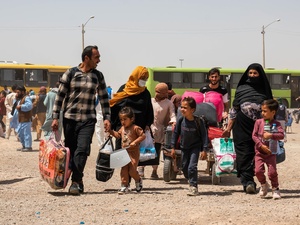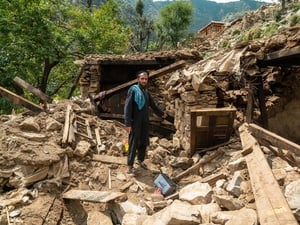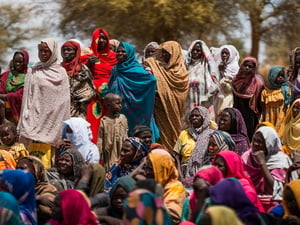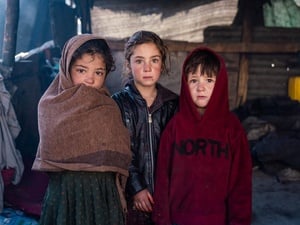Afghanistan emergency: funds shortage
Afghanistan emergency: funds shortage
I assume most of you have received yesterday afternoon's detailed update on UNHCR's activities in Pakistan, Iran and neighbouring countries. In Pakistan, field work is continuing today, with UNHCR teams out in both Baluchistan and North West Frontier provinces. In NWFP, where UNHCR is aiming for 15 camps capable of caring for up to 150,000 people, four sites are now under construction and work on two more is expected to begin on Thursday. In all, we have so far identified nine sites in NWFP and a joint UNHCR-government team is out today looking at six more. Construction is being carried out by various NGOs.
UNHCR has two airlifts planned for Quetta, Pakistan, in the coming days. One flight is scheduled to leave Denmark tomorrow (Wednesday) with 6,200 plastic sheets and 10,350 blankets. A second flight is planned from Norway with Rubbhalls (large tent structures that can serve as moveable warehouses), plastic sheets and registration materials. The security situation in Quetta, where UNHCR's office was attacked on Oct. 8, has impeded our efforts to prepare sites and stockpile relief materials in the border region. So far, UNHCR has had a total of 10 flights to Pakistan and Iran.
On the funding side, as of yesterday (Monday) UNHCR had received only some $12 million in cash contributions of the estimated $50 million needed to care for an initial planning figure of 400,000 new arrivals in surrounding states in the first phase of an emergency. Donor governments have formally pledged another $11 million, but these pledges have not yet been translated into cash. Donors are also providing some $3.1 million worth of in-kind contributions of tents, blankets and other supplies.
UNHCR urgently needs funds to enable it to continue preparations and pre-positioning of relief supplies in case of any influx. Any resources that are pre-positioned for a possible outflow could, however, be transferred inside of Afghanistan as well, depending on how the situation develops. But pre-positioning of supplies at this stage remains crucial to ensure that UNHCR can respond quickly should any major outflow begin.









